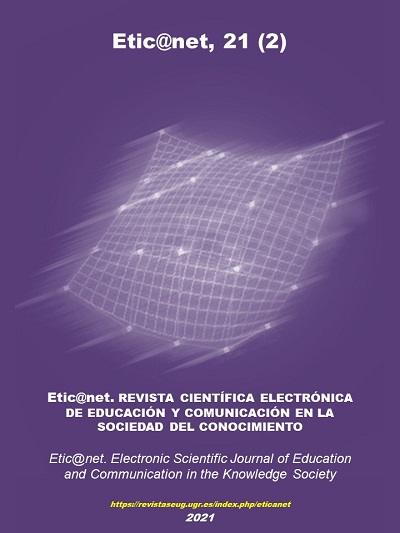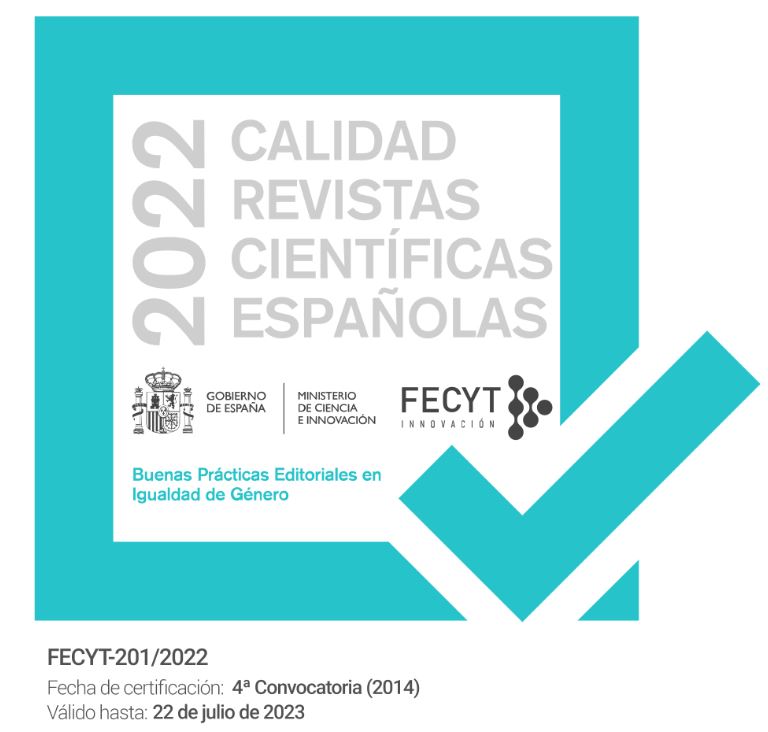Educational intervention for the development of resilience in adolescents from vulnerated contexts in Mexico
DOI:
https://doi.org/10.30827/eticanet.v21i2.20970Keywords:
Resilience, Intervention, Adolescence, High schoolsAbstract
The objective of this paper is to describe an educational intervention focused on developing resilience skills in the students of a telesecundaria school located in a peri-urban community of Conkal, Yucatán, Mexico, characterized by poverty and high rates of domestic violence, alcoholism, gangs, and school violence. The educational intervention was financed by the National Institute of Social Development (Indesol), implemented administratively by the civil association UADY Foundation and academically by a group of researchers from the Faculty of Education of the Autonomous University of Yucatán (UADY). The effects of the intervention carried out were positive for both sexes and in all grades, with a significant improvement in the final level of resilience. Given the positive results obtained, this intervention is considered as an alternative curricular proposal to be used in educational institutions as part of the pertinent human formation for the 21st century.
Downloads
References
Arratia, N. y Valdez, J. (2015). Resiliencia y convivencia escolar en adolescentes mexicanos. Revista de Psicología, 14(2), 62-75. http://revistas.ucv.edu.pe/index.php/R_PSI/issue/view/51
Barcelata, B. (2016). Adolescentes en riesgo: una mirada a partir de la resiliencia. México: El Manual Moderno.
Base de datos “Principales resultados por localidad (ITER)”. Disponible en: http://www.inegi.org.mx/sistemas/consulta_resultados/iter2010.aspx?c=27329&s=est
Coppari, N., Barcelata, B., Bagnoli, L., Codas, G., López Humada, H., & Martínez Cañete, U. (2019). Influencia del sexo, edad y cultura en las estrategias de afrontamiento de adolescentes paraguayos y mexicanos. Universitas Psychologica, 18 (1). http://doi.org/10.11144/Javeriana.upsy18-1.isec
González, S., Pineda, A. y Gaxiola, J. (2018). Depresión adolescente: factores de riesgo y apoyo social como factor protector. Universitas Psychologica, 17(3), 63-73. https://dx.doi.org/10.11144/javeriana.upsy17-3.dafr
Grotberg, E. (1995). “A Guide to Promoting Resilience in Children: Strengthening the Human Spirit” Early Childhood Development: Practice and Reflections. Number 8. Bernard Van Leer Foundation, La Haya, Países Bajos. https://bibalex.org/baifa/Attachment/Documents/115519.pdf
Márquez, C., Verdugo, J., Villarreal, L., Montes, R., y Sigales, S. (2016). Resiliencia en adolescentes víctimas de violencia escolar. International Journal of Developmental and Educational Psychology. Revista INFAD de Psicología., 1(2), 485-498. doi: http://dx.doi.org/10.17060/ijodaep.2016.n2.v1.267
Mateu, R., García, M., Gil, J., Caballer, A. (2009). ¿Qué es la resiliencia? Hacia un modelo integrador. España: Universitat Jaume.
Monterrosa, A., Ulloque, L., y Arteta, C. (2018). Estrategias para mejorar el nivel de resiliencia en adolescentes embarazadas. Investigación en Enfermería: Imagen y Desarrollo, 20(2). https://doi.org/10.11144/Javeriana.ie20-2.emnr
Ortegón, E., Pacheco, J. y Prieto, A. (2015). Metodología del marco lógico para la planificación, el seguimiento y la evaluación de proyectos y programas. Santiago de Chile: Naciones Unidas-CEPAL. https://repositorio.cepal.org/bitstream/handle/11362/5607/S057518_es.pdf
Rutter, M. (1985): «Resilience in the face of adversity: Protective factors and resistance to psychiatric disorder», British Journal of Psychiatric, 147, 598-611. https://doi.org/10.1192/bjp.147.6.598
Ruvalcaba Romero, N., Gallegos Guajardo, J., Orozco Solis, M., & Bravo Andrade, H. (2019). Validez predictiva de las competencias socioemocionales sobre la resiliencia en adolescentes mexicanos. Diversitas, 15(1), 87-99. https://doi.org/10.15332/s1794-9998.2019.0001.07
Suárez, E. y Krauskopf, D. (1995). El enfoque de riesgo y su aplicación a las conductas del adolescente: Una perspectiva psico-social. Publicación Científica No. 552, OPS/OMS. Washington, D.C., EE.UU.
Suarez, N. E. (2004). Perfiles de Resiliencia, en N. E. Suarez, Munist, M., Kotliarenco, M. A (Eds.). Resiliencia tendencias y perspectivas. Argentina: Fundación Bernard van Leer. UNLA.
Werner, E. E. y Smith, R. S. (1982). Vulnerable but invincible: a longitudinal study of resilient children and youth. Nueva York: NcGraw Hill.
Wolin, S. J. y Wolin, S. (1993). The resilient self: how survivors of troubled families rise above adversity. Nueva York: Villard Books.
Wortman, C. B y Silver, R C. (1989). «The myths of coping with loss», Journal of Consulting and Clinical Psychology, 57, 349-357. https://doi.org/10.1037/0022-006X.57.3.349
Published
Issue
Section
License
The authors who publish in this journal agree to the following terms: The authors retain the copyright and grant the journal the right to be the first publication of the work as well as licensed under a Creative Commons Attribution License that allows others to share the work with an acknowledgment of the authorship of the work and the initial publication in this magazine. Authors are allowed and encouraged to disseminate their work electronically (for example, in institutional repositories or on their own website) before and during the submission process, as it may lead to productive exchanges as well as further citation. Earliest and greatest of published works (See The Effect of Open Access).













